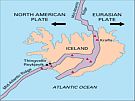Interactive Activities
Printable Activities
| Curriculum Area | Strand | Learning Outcome | Activity |
Science Level 3-4 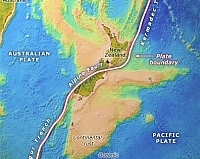
| Planet Earth and Beyond Nature of Science | - Identify the major plates and their boundaries
- Apply the theory of plate tectonics
- Model movement of plates
| - Pangaea to Present - Word (152k) | PDF (192k)
- Geohazard Impacts - Word (89k) | PDF (338k)
|
Social Studies Level 3-5 and English Level 3-5 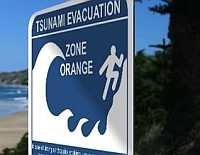
| Place and Environment Presenting | - Inform people how to protect themselves and their property from a disaster
- Show how a disaster should be managed
- Present information effectively Summarise and catergorise earthquake impacts
| - How Safe is My House Word (60k) | PDF (92k)
- Civil Defence Poster - Word (245k) | PDF (190k)
- Canned Disaster - Word (2Mb) | PDF (176k)
- Geohazard Impacts - Word (89k) | PDF (350k)
|
Mathematics Level 3-4 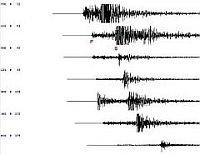
| Number and Algebra Statistics | - Apply number strategies and number knowledge to a range of problems related to the virtual field trip
| - Field Trip Number Challenge - Word (31k) | PDF (125k)
- Geohazards Work it Out - Word (39k) | PDF (267k)
|
Science Level 4-8 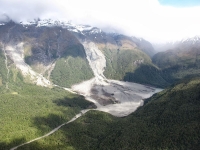
| Planet Earth and Beyond Nature of Science Physical World | - See patterns in the worldwide distribution of earthquakes and volcanoes
- Understand that New Zealand's location on a plate boundary explains why the country has earthquakes and volcanoes
- Understand that specialists collaborate to provide evidence to support their ideas
- Understand how base isolators protect buildings from damage during earthquakes
- Be able to predict where future earthquakes might occur
- Understand the movement of plate boundaries in different parts of New Zealand
- Look for patterns in earthquake events but appreciate that earthquakes cannot be predicted
- Explain the causes and impacts of tsunami
- Develop an understanding that increasing stress within the earth builds up until it is released as an earthquake
- Model how seismic waves travel through the Earth
- Demonstrate the properties of seismic waves
| - World of Quakes and Volcanoes - Word (335k) | PDF (398k)
- Shaky New Zealand - Word (204k) | PDF (274k)
- Plates Quakes and Volcanoes - Word (456k) | PDF (551k)
- Plate Boundary Models - Word (4.3Mb) | PDF (821k)
- How Safe is My House - Word (60k) | PDF (92k)
- Earthquake Prediction - Word (185k) | PDF (93k)
- Slinky Simulation - Word (364k) | PDF (191k)
- Human Molecules - Word (300k) | PDF (200k)
- Home Disaster Kit - Word (348k)| PDF (382k)
- A Tsunami Through the Window - Word (1.2Mb) | PDF (117k)
|
NCEA Geography Level 2 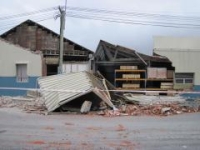
| Explain a Natural Environment Spatial Analysis | - See patterns in the worldwide distribution of earthquakes and volcanoes
- Understand that New Zealand's location on a plate boundary explains why the country has earthquakes and volcanoes
- Be able to predict where future earthquakes might occur
- Understand the movement of plate boundaries in different parts of New Zealand
- Look for patterns in earthquake events but appreciate that earthquakes cannot be predicted
- Explain the causes and impacts of tsunami
| - World of Quakes and Volcanoes - Word (334k) | PDF (398k)
- Shaky New Zealand - Word (204k) | PDF (274k)
- Plates Quakes and Volcanoes - Word (456k) | PDF (551k)
- Plate Boundary Models - Word (4.3Mb) | PDF (821k)
|
More things to try
- diaries and journals - keep your own field trip diary - Word (13k) | PDF (k) | Google doc.
- LEARNZ field trip Web Quest. This print-and-copy task helps students become familiar with the field trip website functions. It also assists students with their inquiry skills, particularly information gathering and asking good questions. Students need to have an internet connection and their class login - Word (845k) | PDF (671k) | Google doc.
- field trip web conference activity. Students can work on this activity while they listen to live or recorded web conferences - Word (25k) | PDF (167k) | Google doc. Notes from these pages could be shared to help put together the class web conference summary.
- A simple activity for students to build connections between words and improve their vocabulary. Students could enter words from the field trip glossary into http://graphwords.com/.
Post field trip activity
How much have I learnt? - Word | PDF | Google doc






